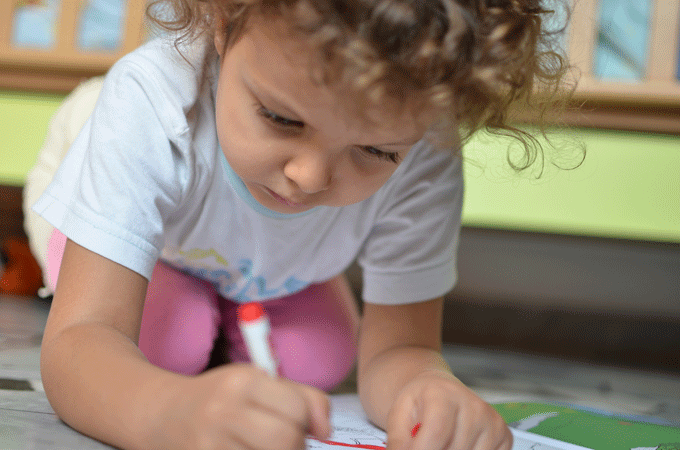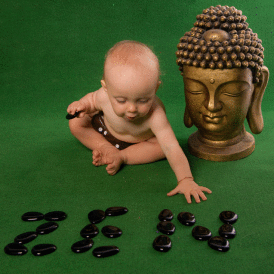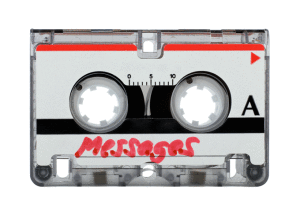My pregnancy with our first child was nothing out of the ordinary, except that she kicked and moved a lot. When she was born, the nurse noticed her face looked blue and her cry was not robust, so they whisked her off to the NICU after I held her for a minute. She was in there for two days as they ran tests and determined that she had some fluid in her lungs. The next six months were a blur of bottles, diapers and a baby who slept perfectly through the night after the third week home. My husband and I felt incredibly blessed.
Things began to change after the sixth month. Our daughter began to change from a healthy, active baby to one who was extremely intense. She would get agitated if there was a change in her schedule. She would scream, kick her legs, flail her arms wildly, and arch her back when I tried to strap her in her stroller or car seat as we left the park or if my husband stayed home with her while I ran errands alone. Her tantrums lasted 45 minutes and often included banging her head on the ground until she bruised or got a lump on her forehead. I also noticed her eye contact had become almost nonexistent. When she learned to walk, it was primarily on her tiptoes, and she barely spoke.
Around the time our daughter turned 1, our next-door neighbor told us about her son who was diagnosed with autism. When she ran through the checklist of symptoms the doctors had used to diagnose him, my blood ran cold: An obsession with lining up objects. A preoccupation with one particular subject (my daughter loves animals). Minimal eye contact. These were all characteristics exhibited by my own child. My neighbor noticed my concerned facial expression and urged me to find a specialist.
At the time, money was tight in our household; I had stopped working to stay home with our daughter, and we were planning to have another child very soon. We decided to postpone our plans and instead look into early intervention, a system of services that helps babies and toddlers with developmental delays or disabilities. After our daughter was tested, we were told she passed (barely) and did not qualify for occupational or speech therapy.
After our second child was born, things got much worse with our oldest. At times, I was worried she would hurt the baby, so I kept a close eye on her at all times. She had already bitten friends on play dates and I didn’t want to find out what else she might be capable of inflicting on her sister. We hardly ever left the house, because I couldn’t manage her tantrums in public with a baby in tow.
Meanwhile, I read and reread lots of books and resorted to PBS Kids on television whenever my daughter’s behavior began to escalate. My oldest was mesmerized by the TV. She would have watched it all day if I let her, but I refused to let her catatonically sit in front of the tube. Instead, I created a schedule for her and stuck to it religiously. At the end of each day I needed a break from the stress. I remember pacing in front of the living room window many evenings watching for my husband’s car to pull into the driveway.
By the time she was 3, I had had enough. Her tantrums were traumatizing to witness. She would often scream the same word over and over, crying so hard that she vomited. Unfortunately, this happened in the car many times. The head banging also continued. My husband and I felt like she was possessed. Her 1-year-old sister was talking more than she was and began reciting colors at the age of 2, while our oldest still struggled to identify them. I met with her pediatrician to explain that my daughter was still not talking at the level expected for her age and went through the list of other concerns. She referred me to the school district, which had a program for children with developmental delays.
After the school tested our daughter, it was confirmed she had cognitive and social delays that would qualify her for their special preschool program. A bus would pick her up each morning right in front of our house and drop her off when she was done two-and-half hours later. That was when things began to get easier, but I still didn’t have a firm diagnosis. My husband thought I was on “a witch hunt.” I felt like a horrible mom some days, but I still couldn’t shake that feeling that something more might be going on with my child. Although the teachers were fantastic at this school, they could neither confirm or deny that my daughter might have something more than a developmental delay.
It wasn’t until my daughter went into first grade that we finally got some real answers. Her behavior was getting out of control at school. She was fine in a structured setting, but a few incidents in the lunchroom and on the playground landed her in the principal’s office. She spit in a girl’s food when the girl pulled her hair. She bit a boy on the shoulder when he tapped her on the shoulder. I was shocked. My husband and I were well behaved as children and that carried into adulthood. At night my daughter would sob and say she wanted to kill herself. I often caught her biting her arm or clawing at her face when she would get frustrated. Her teachers reported the same behavior at school. I would lie awake at night worrying.
We looked into child counseling, which led to a reference to some specialists. The first specialist brushed aside my concerns about my daughter possibly having autism or being on the spectrum. He constantly corrected my verbage and got very technical about what they call it these days. I didn’t care one way or another what they called it, I just desperately wanted a place to start from and go from there. He suggested that she had ADHD and ODD (Oppositional Defiant Disorder). I listened to his solutions for how to help our daughter control her impulses. His suggestions included modifying her diet, incorporating more exercise into her day, and using breathing techniques.
None of these things worked. Our counselor was baffled by the specialist’s diagnoses and suggested that we see a psychiatrist that her own child had visited.
I sat down for the initial consultation with the child psychiatrist and went through all my concerns, and I shared stories that I have shared with countless other doctors, teachers and even other moms. He actually listened and asked questions that resulted in ample head nodding and affirmations from me. At the end of the meeting he told me he agreed with the diagnosis of ADHD, but he said that our daughter has Asperger’s, not ODD.
Relief washed over me and, admittedly, some sadness too. All these years I had been so afraid that our daughter might be on the spectrum, but now we had something to work with and a plan. He prescribed a medication to help with her impulsive behavior and difficulty staying on task. The first medication didn’t work, but the second one did. It felt like the sweet little girl inside was overshadowed by ADHD and Asperger’s all this time and this wall that felt impenetrable was finally broken. It felt wonderful to have my daughter back.
This journey with my daughter taught me to always go with my gut as a mother. I wish I hadn’t let any doctor or specialist make me feel like I didn’t know my own child best. Consumed by fear and overwhelmed by the intensity of the situation, it was easy to question myself and my instincts. This experience also taught me that troubled children are not necessarily the product of their environment. You can be the most loving, generous mom or dad, but if your child suffers from ADHD or something similar, that will not correct their behavior and you are NOT a terrible parent. I was relieved when I finally figured that out.
It took me and my family six long years to finally get on track, but all the work was worth it. If you have found yourself in a similar situation, know that there are other parents out there going through the same thing. Talk to them. Talk to your child’s teachers and doctors. Seek help from specialists with an open mind and heart, but in the end listen to that voice inside you that knows your child best. Be relentless, because the answer is out there.




















